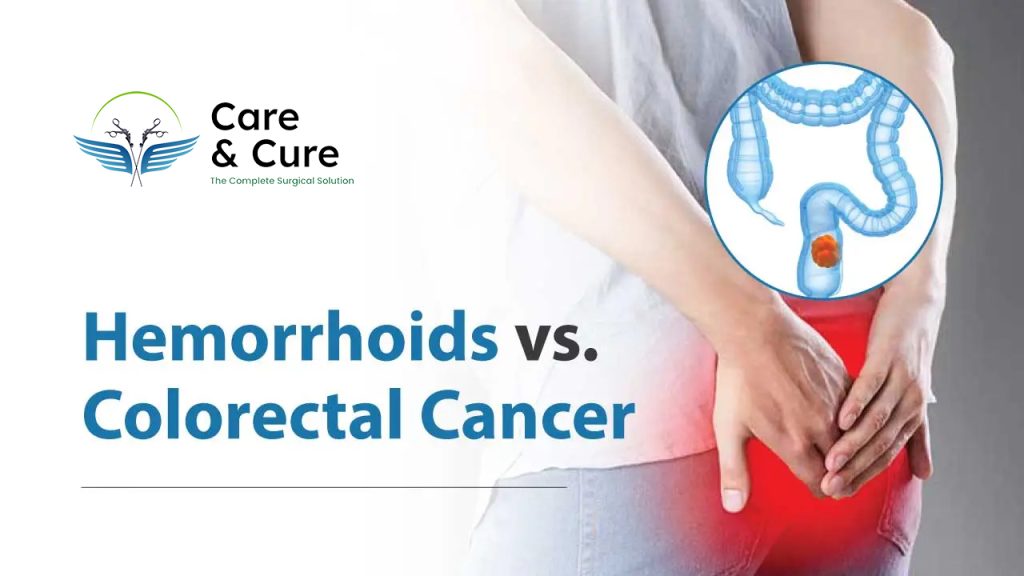
If you’re noticing ongoing discomfort from hemorrhoids (piles), it might be time to consult a piles specialist doctor. In this guide, we discuss the most important warning signs that indicate you should seek professional care, and explain what advanced options—like laser piles treatment, rubber band ligation, or hemorrhoidectomy—can offer. If you see concerning symptoms, don’t hesitate to book a consultation with a piles doctor today 🔗 Piles Doctor Anchor Link.
1. Persistent or Heavy Bleeding
- Bright red blood during bowel movements or on toilet paper is often a sign of internal hemorrhoids.
- Occasional spotting is common, but frequent or heavy bleeding—or clots in stool—can signal worsening and may lead to anemia .
- Any bleeding that doesn’t improve after a week of home treatment should prompt a visit to the clinic.
2. Severe or Increasing Pain
- External hemorrhoids, especially thrombosed ones, can cause intense pain, inflammation, swelling, or a hard lump near the anus.
- Cramping or sharp pain that persists—inside or outside—may indicate complications that only a surgeon can address effectively.
3. Prolapse or Lump That Won’t Retract
- A prolapsed hemorrhoid, is when tissue bulges from inside the anus and may need to be manually pushed back.
- If it stays out, becomes tender, or bleeds, you could be experiencing grade III or IV hemorrhoids. These generally require surgical treatment.
4. Itching, Mucus Discharge, or Soiling
Related Post
Top Post
- Ongoing itching, mucus discharge, or a sensation of incomplete bowel emptying are common signs of advanced hemorrhoidal disease.
- If these symptoms don’t improve with typical home remedies, an accurate diagnosis is important to rule out other conditions like fissures or early colorectal issues.
5. Pain When Sitting or During Bowel Movements
- Hemorrhoids aggravated by sitting, straining, or bowel pressure often signal that treatment beyond home care may be beneficial.
- Pain that interferes with daily life or doesn’t respond to OTC remedies may require procedures such as rubber band ligation or laser therapy.
6. Fever, Dizziness, or Other Serious Red Flags
- While hemorrhoids typically don’t cause systemic symptoms, the presence of fever, signs of infection (redness or discharge), or dizziness/lightheadedness from blood loss demand urgent attention.
- These could indicate complications or unrelated colorectal diseases like anal or colon cancer.
Treatment & When to Consider Seeing a Specialist
First-line Home Care
- High-fiber diet, adequate fluids, stool softeners, sitz baths, and topical OTC creams (e.g., Preparation H).
Office Procedures
- Rubber band ligation – effective for internal hemorrhoids (87% success at 4 years) en.wikipedia.org.
- Sclerotherapy or coagulation – for small bleeders or recurrent symptoms.
Surgical Intervention
- Hemorrhoidectomy – definitive for large, recurring, or thrombosed hemorrhoids.
- Stapled hemorrhoidopexy or Transanal Hemorrhoidal Dearterialisation (THD) – effective, minimally painful options.
Piles vs Cancer: How to Spot the Difference
| Sign | Why It Matters |
|---|---|
| Bright red blood > 1 week | Rule out anemia & invasive treatment |
| Hard/swollen lump | May indicate thrombosis |
| Irreducible prolapse | Often requires surgery |
| Severe pain or fever | Possible infection |
| Persistent itching/discharge | Risk of complication |
| Dizziness/fainting | Potential serious blood loss |
Final Takeaway
Hemorrhoids don’t have to disrupt your life. At the first sign of severe bleeding, prolapse, persistent pain, or infection, it’s time to seek specialized care. With advanced, minimally invasive options, Dr. Rakesh Dhupia ensures fast recovery, expert treatment, and renewed comfort. Don’t suffer in silence—book your appointment today.
When to See Dr. Rakesh Dhupia
As a specialist in minimally invasive and laser hemorrhoid treatments, Dr. Rakesh Dhupia offers personalized solutions for complex piles. If you’re experiencing any warning signs mentioned above, schedule a consult today with our piles doctor. Early treatment ensures faster relief and fewer complications.
📞 Strong Call to Action
Don’t wait—take the first step toward relief now.
👉 Book your consultation with our piles specialist doctor today!
Don’t wait—take the first step toward relief now.
👉 Book your consultation with our piles specialist doctor today!
FAQs – What Patients Want to Ask (Voice‑Search Optimized)
Q1: When should I see a doctor for hemorrhoids?
If symptoms like pain, bleeding, or itching last longer than a week or worsen despite home care.
Q2: Is bleeding during hemorrhoid flares normal?
Light bleeding can occur, but frequent or heavy bleeding needs medical assessment.
Q3: Do I need surgery for hemorrhoids?
Surgery may be needed for prolapsed, thrombosed, or persistent hemorrhoids not responding to treatment.
Q4: What treatments do specialists offer?
Options include rubber band ligation, laser therapy, sclerotherapy, stapled hemorrhoidopexy, hemorrhoidectomy, and dearterialization.
Q5: Can hemorrhoids lead to infection or anemia?
Yes—severe cases can bleed heavily or cause infection symptoms like fever and discharge.
Q6: Are hemorrhoids connected to cancer?
Rarely—but any rectal bleeding should be evaluated to rule out colorectal cancer
Q7: How fast should hemorrhoid symptoms go away?
Mild cases often improve in 7 days. Beyond that, a specialist evaluation is advised .
Useful Internal Links
- Discover all our surgical services: Services Page.
- Learn more about laser fissure treatments: Fissure Surgery.
- Interested in fistula care too? Here's what you need: Fistula Surgery.
- Have questions? Visit our comprehensive FAQ Page.
